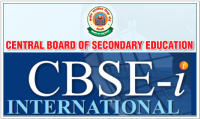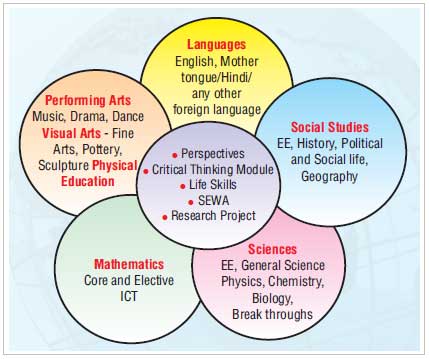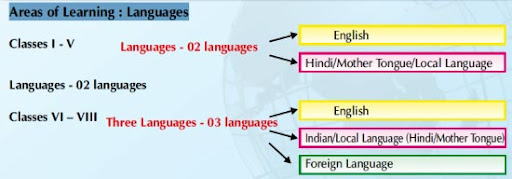What is CBSE International? | CBSE-i
Disclaimer: This website is NOT associated with CBSE, for official website of CBSE visit - www.cbse.gov.in

What is CBSE International?
|
Health and Physical Education
Clubs
|
CBSE-i is ...
|
CBSE i - Leading for Change
Aims:
- to develop strategies that improve their reasoning ability.
- to use trial and improvement techniques
- to make hypotheses and resolve them
- to develop Computational Skills along with reasoning, analysis, synthesis and logic
- to develop skills of approximation, estimation, measurement
- to be able to identify patterns
- to promote logical and spatial intelligences
- Mathematics Lab activities - an integral, compulsory part of the Math curriculum examinable from classes VI to X.
Information and Communications Technology:
- to help students assess the impact of new technologies on society
- to train them to use these productively.
- to help students understand and use common software applications
- to enhance their ability to access, evaluate and research information
Five learning areas represented as the five petals which intersect in a cross-curricular approach.

Areas of Learning : Languages:

Guidelines
1. The students opting for CBSE-i in Class I will follow the
syllabus document worksheets provided and teachers guidelines in complete
conformity with those provided.
2. In case of Class IX the students opting for CBSE-i will follow the
syllabus document curriculum guidelines and teachers detailed plan as given
by the CBSE.
3. In case of Social Science, Hindi and Additional Language they will follow
the guidelines provided in the subject separately.
4. CBSE-i Class IX will also follow the CCE pattern assessment. There will
be 60% weightage to Formative Assessment and 40% weightage to Summative
Assessment.
5. The Formative Assessment will be focused on assessment for learning and
Summative Assessment will be focused on assessment of learning.
FAQs
1. Does CBSE have the mandate to run an International Curriculum?
2. Why should there be an international curriculum from CBSE?
3. Is this curriculum meant exclusively for schools situated abroad?
4. How does this curriculum differ from the existing CBSE curriculum?
5. In which classes is the curriculum being introduced during the academic year 2010- 2011?
6. Will the curriculum for different subjects in these classes vary from those of NCERT/CBSE?
7. Will the classroom transactions in the new pattern be different from those of existing scenario?
8. Who will prepare the text books for these classes?
9. Will the teachers be aware of the new pedagogical dimensions being suggested by CBSE?
10. What will be the pattern of evaluation of the students in CBSE International?
11. How many languages would the students be expected to study at the primary level and at the middle and secondary level?
12. What kind of options exists for study of languages at the primary level?
13. What are the options for the study of languages at the middle and secondary stage?
14. What are the other subjects offered at the primary level?
15. Are there any other learning inputs at the primary level?
Courtesy: CBSE.NIC.IN